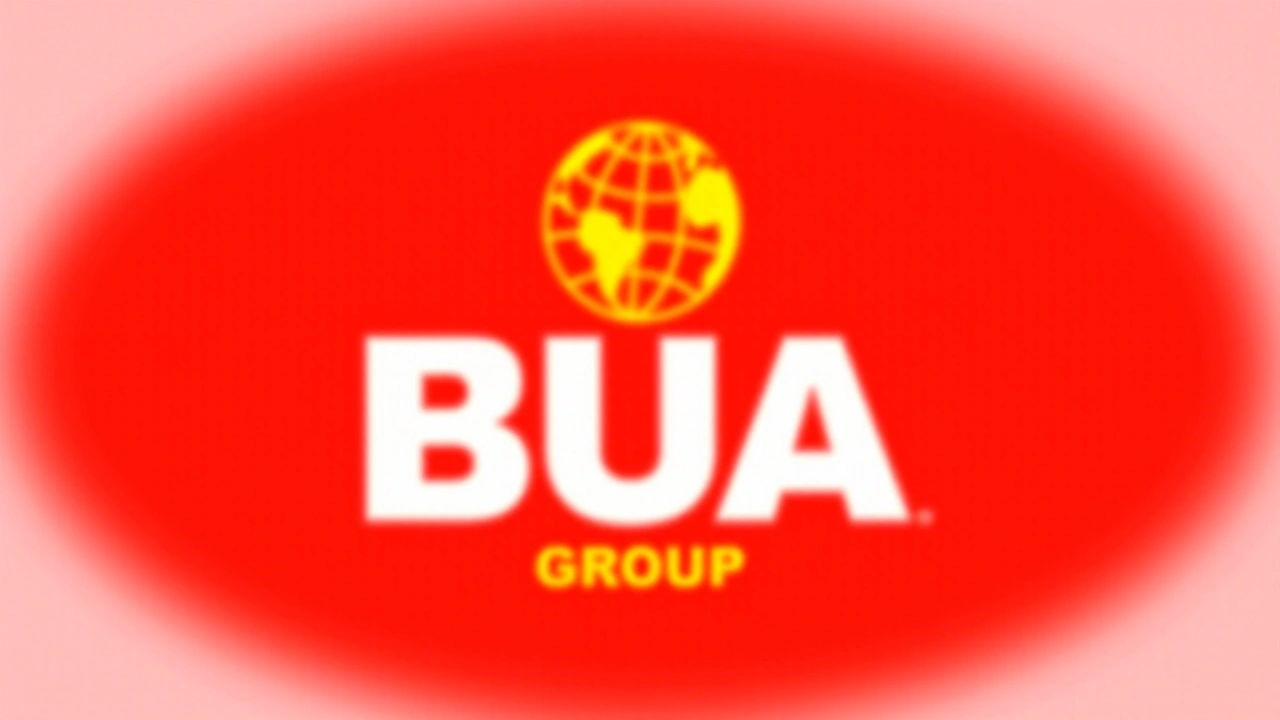Setting the Record Straight: BUA Group's Refinery Endeavor
In the industrial sphere, rumors and misinformation can often lead to public misunderstanding and undue expectations. Such is the case for the BUA Group, one of Africa's leading conglomerates, which recently found itself in the spotlight surrounding unverified claims about the completion status of its ambitious refinery project in Akwa Ibom, Nigeria. BUA Group, known for its significant contributions to the cement and sugar sectors, has embarked on a transformative journey into energy by constructing a state-of-the-art 200,000 barrels per day refinery. Recent reports misguidedly suggested that the Akwa Ibom refinery was on the brink of completion at 90%, prompting the company to swiftly issue a clarifying statement.
The Truth About Akwa Ibom Refinery's Current Progress
The management of BUA Refinery and Petrochemicals responded promptly to these misconceptions, emphasizing that while palpable progress has been made, the venture is not as developed as speculated. Contrary to assertions of near completion, officials confirmed that the project is continuing diligently towards its targets, with substantial work yet to be completed. They stressed the importance of accuracy in reporting such monumental industrial undertakings and urged interested parties to seek information from BUA's official releases. This call for accurate information dissemination underscores BUA's dedication to transparency and its role as a driver of Nigeria's industrial advancement.

A Strategic Move for Nigeria's Energy Security
The Akwa Ibom refinery is set to bolster Nigeria's local refining capacity significantly, reducing the nation's dependency on imported refined products, a critical factor in the country's ongoing quest for self-sufficiency and economic resilience. With this endeavor, BUA Group is not just contributing to energy self-reliance but also paving the way for enhanced national security through reliable energy supply. This development aligns with Nigeria's strategic objectives, such as strengthening value creation within the country and fostering an environment conducive to job creation and economic growth.
Additional Energy Projects: A Broader Industrial Vision
Expanding beyond the refinery, BUA Group is investing in several auxiliary energy projects to fortify its foothold in the Nigerian market. These include a mini-LNG plant and multiple hybrid power plant constructions positioned strategically across the nation. These projects are expected to augment BUA’s already impressive installed captive power generation capacity, which exceeds 1,000 MW. By diversifying its energy portfolio, BUA Group affirms its capacity to innovate and adapt in a rapidly evolving industrial landscape.
Maintaining a Solid Track Record of Industrial Success
BUA Group's emphasis on precision in media reporting stems from its respectable history of project execution. Over the past decade, the conglomerate has successfully completed over 12 major industrial projects amassing an investment exceeding $3.5 billion. This track record showcases BUA’s capability to deliver on its promises while adhering to high-quality standards and timely completions. The company remains committed to transparency and openness, welcoming public scrutiny and engagement as it continues to carve out a prominent role in Nigeria’s industrial sector.

Looking Forward: Eager Anticipation for Project Completion
Recognizing the enthusiasm and high expectations surrounding the Akwa Ibom refinery, BUA Group expresses gratitude towards the public and stakeholders for their support and patience. The project, scheduled for completion by the end of 2025, represents a significant milestone not only for the conglomerate but for Nigeria as a whole, potentially reshaping the nation's industrial and economic future. As BUA Group marches forward, it remains steadfast in its ambition to establish a formidable industrial and manufacturing base capable of ushering Nigeria into an era of self-reliance and industrial prosperity.



Comments
The BUA refinery story really highlights how industrial ambition weaves into the cultural fabric of Africa. When a conglomerate of that size makes headlines, it’s not just about barrels per day – it reflects the aspirations of an entire region. People see a symbol of progress, and that can quickly turn into myth if the narrative isn’t managed properly. The rumors about a 90% finish line were bound to spark excitement, especially given Nigeria’s long‑standing reliance on imports. It’s a classic case where hope outpaces the hard reality of engineering schedules. So the group’s clarification is not just a PR move; it’s a reminder that large‑scale projects have many moving parts. From procurement to civil works, each stage has its own timeline, and a slip in one area ripples through the whole plan. Moreover, the public perception can influence policy decisions, especially when the government is counting on domestic refining to boost energy security. As an observer of global industrial trends, I’m fascinated by how BUA balances its cement and sugar legacy with this massive petrochemical leap. The transition shows a strategic pivot that many emerging market firms are considering. Ultimately, transparency builds trust, and trust is essential for the social license to operate. Let’s keep an eye on how they manage milestones moving forward.
Totally agree! This is a massive step forward for Nigeria 🌟 Keep the updates coming, it’s exciting to watch this unfold.
The intricacies of large‑scale refinery development cannot be overstated, particularly when interfacing with national energy policy frameworks. In the BUA scenario, the projected 200,000 barrels per day capacity introduces a substantial shift in the downstream supply chain dynamics, which in turn impacts the feedstock procurement matrix. From a project management perspective, the critical path currently hinges on the EPC contract finalization, the steel pipe procurement lead times, and the integration of the mini‑LNG ancillary units. Moreover, the hydro‑testing regimes for the primary distillation columns demand meticulous scheduling to avoid bottlenecks that could cascade into downstream units such as the catalytic reformer and the hydrocracker. It is also worth noting that the local content stipulations mandated by the Nigerian government will require a calibrated balance between imported high‑specification components and domestically fabricated structures. The environmental impact assessments (EIAs) have introduced additional compliance layers, especially concerning effluent treatment and emissions monitoring, which must align with both national regulations and potential ESG investor criteria. Financially, the capital deployment schedule is contingent upon phased disbursements linked to milestone achievements, meaning cash flow modeling must integrate risk buffers for unforeseen delays. From a workforce development angle, BUA’s commitment to upskilling local talent through vocational training programs could serve as a catalyst for broader industrial capacity building. In addition, the strategic placement of the refinery within the Akwa Ibom free zone offers logistical advantages, yet also imposes specific customs and port handling protocols that need harmonization. Finally, the projected commissioning timeline targeting end‑2025 must accommodate the ramp‑up of ancillary utilities, such as the captive power generation exceeding 1,000 MW, and the integration of hybrid renewable modules slated for future phases. All these interdependent variables underscore why a 90% completion claim is premature, as the system‑of‑systems approach demands holistic verification before any public declaration can be substantiated.
While optimism is understandable, it’s crucial to stay grounded in facts. Over‑hyping progress can lead to misplaced expectations and erode public trust.
Exactly, a measured approach is best. Even though it’s tempting to celebrate early wins, the real test is the final hand‑over and operational reliability. 😊
Honestly folks, the real lesson here is about patience and realistic timelines. Big projects rarely sprint; they crawl, adjust, and then sprint when the groundwork is solid.
Indeed, patience is a virtue, especially when you consider the myriad of logistical constraints, regulatory approvals, and the inevitable supply chain disruptions, which, frankly, are all part of the complex tapestry that defines large‑scale industrial undertakings, and if we fail to acknowledge these moving parts, we risk oversimplifying a deeply intricate process, which could lead to public disappointment and investor skepticism.
This is a huge boost for local jobs.
Let’s be clear: Nigeria must prioritize homegrown energy solutions over foreign dependency. The BUA refinery is a strategic asset that will cement national sovereignty and drive macro‑economic growth.
Exactly! It’s all about building our own future, and every barrel refined locally is a win for the people.
Seeing the transparency from BUA gives a lot of hope. It shows they’re serious about delivering on promises and uplifting the community.
Totally! It’s refreshing to see a big player keep the dialogue open and honest.
Yo, I can’t believe people are still talking about 90% done-like, bro, check the facts! The project’s still a beast in the making, and those rumors are just hype.
Honestly, I’m not super impressed. They’re taking their sweet time, and the buzz is overblown.
All this talk about “progress” just masks the fact that foreign oil interests still dominate. If we truly wanted independence, we’d nationalize the whole sector.
Interesting point-however, consider that privatization can bring efficiency, innovation, and capital influx, which the state alone may struggle to provide; therefore, a balanced approach might serve national interests better.
We speak of refineries as if they are mere machines, yet they embody the very soul of a nation's ambition; when we neglect the human stories behind steel and pipe, we lose sight of why progress truly matters.
That’s a nice way to put it. I wonder how the local workforce will be trained for such advanced operations.
Training will likely involve partnerships with tech institutes and on‑the‑job apprenticeships 👍